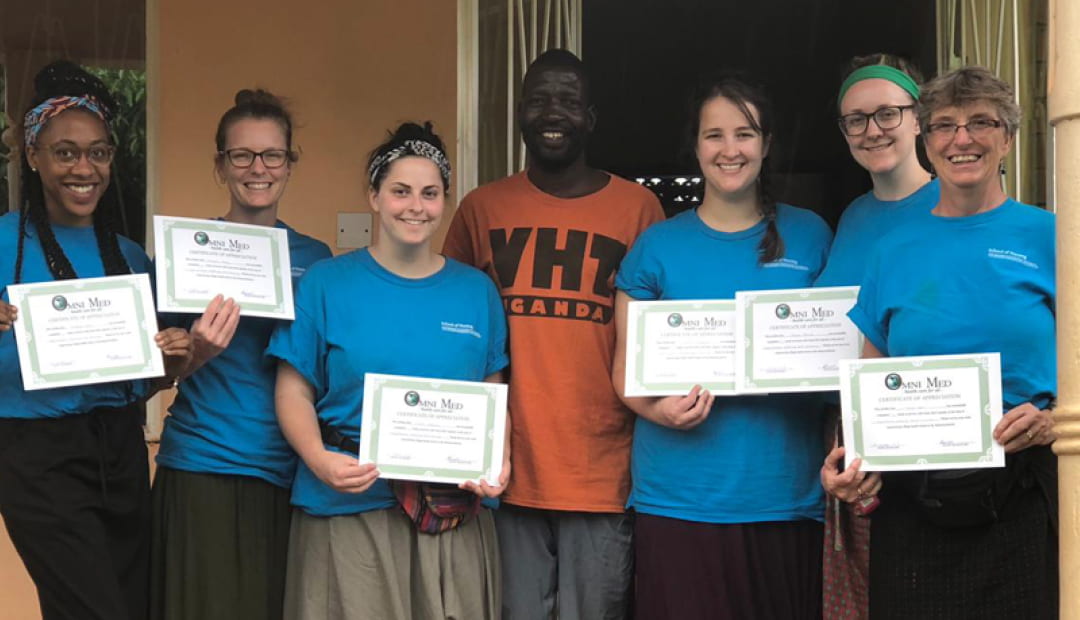In honor of her legacy as a preeminent nurse practitioner and leader, the George Washington University recently named Mary-Michael Brown one of its 73 Monumental Alumni as part of its Bicentennial celebration.
After many years as a clinical nurse, Mary-Michael Brown, RN, D.N.P., utilizes her vast knowledge to improve nursing practices. As vice president of nursing practice innovation for MedStar Health, Dr. Brown creates and disseminates evidence-based clinical practice guidelines and provides oversight for nursing practice across MedStar Health. She also leads multiple system initiatives, including chairing the Nursing Practice Innovation Committee and serving as the executive sponsor for the Nursing Peer Review Committee, Safe Patient Handling and Mobility Committee, and Nursing Quality and Safety Council. In 2011, Dr. Brown was honored with The Martha E. Brill New Researchers Award from the American Nurses’ Foundation.
Dr. Brown earned her Bachelor of Science degree in Nursing from Georgetown University, her Master of Science degree from Boston College School of Nursing, and her Doctor of Nursing Practice degree from the George Washington University. She was the recipient of the 2011 George Washington University Alumni Award for the School of Nursing and is the chair of the GW School of Nursing Dean’s Advisory Council. As an adjunct faculty member in the Doctor of Nursing Practice Program, Dr. Brown co-facilitates the course, Translating Research into Practice. She serves as a secondary advisor for Doctor of Nursing Practice students’ final scholarly projects.
Dr. Brown is a member of the American Organization of Nurse Leaders, Sigma Theta Tau International (Phi Epsilon chapter), the American Association of Critical Care Nurses, and the Emergency Nurses Association.
“Earning a D.N.P. degree from GW School of Nursing helped me appreciate that there are no limits on what I can contribute to the profession of nursing,” said Dr. Brown. “Giving back to the School of Nursing and advancing its mission is an honor and privilege.”
As a Monumental Alumna, Dr. Brown is in rare company with GW’s most prestigious alumni, including Colin Powell, Ted and Mark Lerner, Tammy Duckworth, Elizabeth Warren and Kerri Washington.
For more on the GW Bicentennial Monumental Alumni, visit: https://bicentennial.gwu.edu/monumental-alumni


